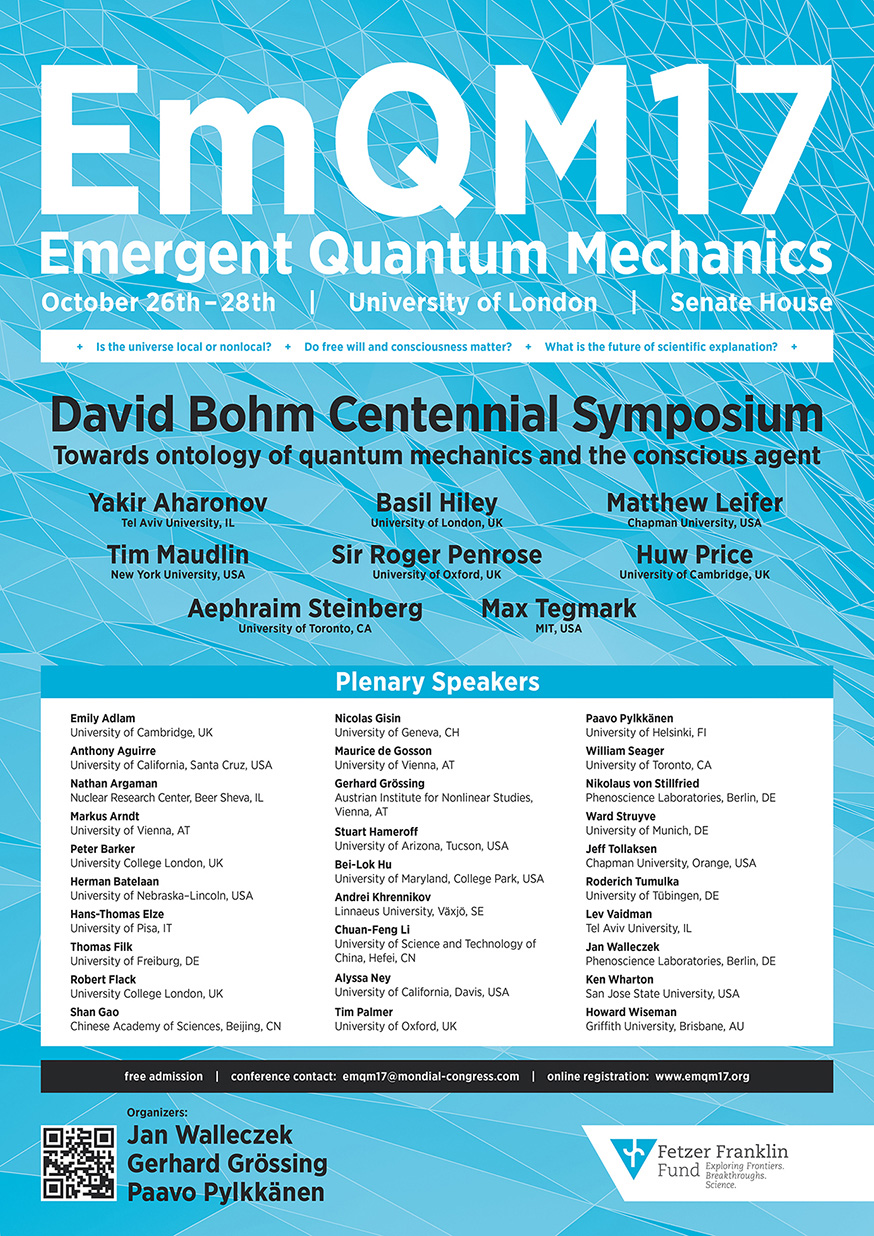Jonathan Sharp
One Universe, Many Spaces: A Non-Local Relativistic Quantum Spacetime
The recently proposed `Many-Spaces’ theory of quantum spacetime comes equipped with an ontology providing direct answers to many of the central questions posed at the Symposium. This ontology was derived from relativistic arguments and consists of a non-local, relativistic spacetime, composed of many coexisting 3+1D spaces. By identifying ‘coexistence’ as ‘superposition’, quantum wave behaviour emerges from the interactions between these spaces. The inter-space coupling strength is proportional to 1/h. Since pairs of spaces are related by the Lorentz boost, momentum is the fundamental basis. The 4-dimensional manifold of Minkowski spacetime is a classical subset of the full quantum spacetime.
This theory may be characterized as: realist, psi-ontic, subjective, with a focus on the relativistic observer, single universe but many spaces. Locality/non-locality is a property of a system, not of the spacetime per se. A definite spacetime interval (& metric) is only definable for systems for which all elements possess a definite momentum (classical systems). Systems coexisting across multiple spaces are non-local (quantum systems).
Some aspects may be open to experimental test. Since momentum is the fundamental basis, only systems in momentum superposition can evolve unitarily. A fundamental basis greatly simplifies discussion of quantum measurement, seen as a symmetry-breaking process. Wave-particle duality is interpreted as an object-subject duality. There are multiple relative subjective realities, but they are interacting and interdependent. While classical relativistic observers will harmlessly disagree on observations, a many-space observer has multiple viewpoints, and disagrees with itself. We call this quantum.



